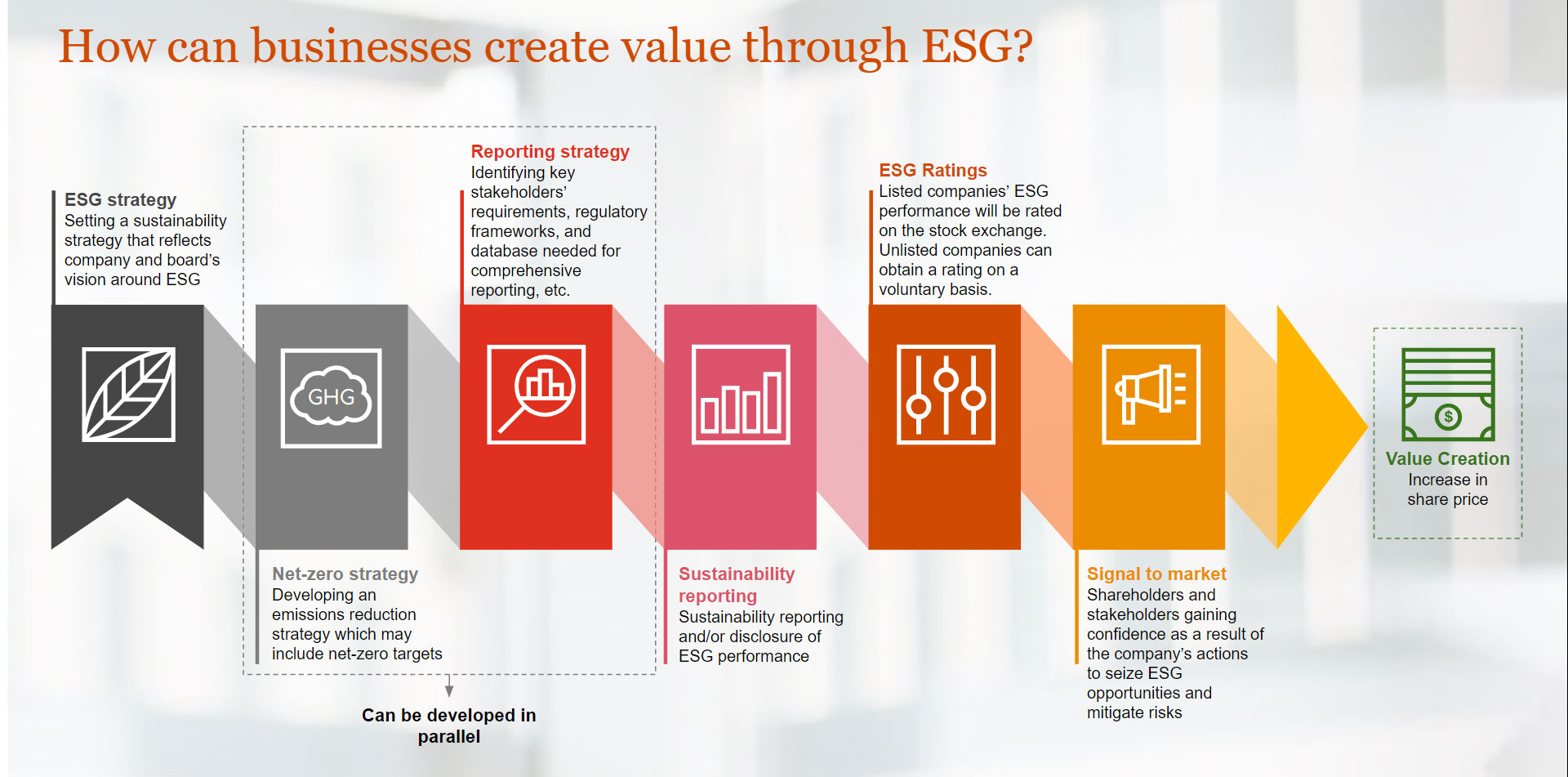Value creation journey
Sustainability


As a result of a rapidly increasing global focus on broad ESG issues by governments, the private sector and the public over the past few years, a trend exacerbated by the COVID-19 pandemic, we have witnessed a major shift towards a better understanding of climate change, sustainability and other ESG issues. Companies and organisations are looking to identify and respond to their ESG risks and opportunities. Active management of ESG issues can directly impact the bottom line as well as a company’s reputation and social licence to operate. Our range of services will help you better understand the ESG value creation journey and how PwC can assist you to fulfill your ESG needs.
How we can help
Related links

The Energy Transition
Fuelling a resilient future through powerful alliances, greener investment and greater use of renewables.

Indonesia's Carbon Pricing: Understanding the Basic Regulatory Framework
The key concepts in carbon pricing regulations and discussion on the legal considerations for investors and businesses in entering Indonesia’s carbon market.

Carbon Market Value in the Climate Change Era
Our services will help you gain a better understanding of carbon credits and the expanding market from the perspectives of buyers, sellers, and investors.
ESG and Sustainability Value Creation in the Climate Change Era
Our statement of capabilities
Sustainable Finance Services
Our statement of capabilities
Contact us


























